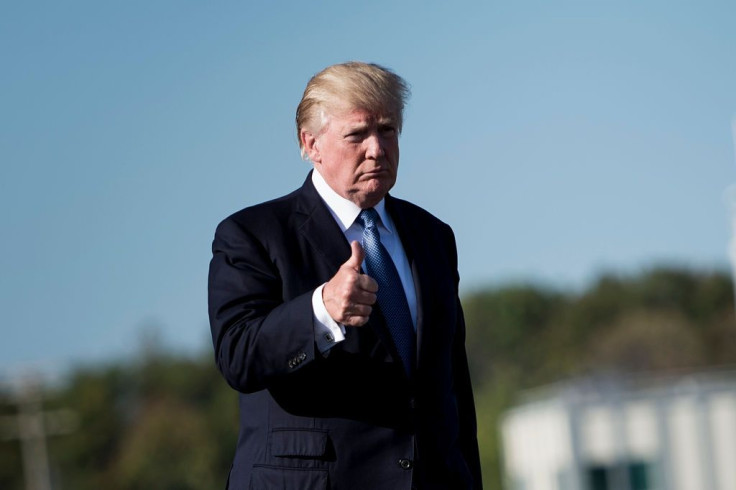
President Donald Trump has announced a new wave of travel restrictions, expanding the scope of the ban to include North Korea and Venezuela. While the North Korea restrictions were expected given the rapidly escalating tensions, the Venezuela restrictions came as a surprise to many but clearly demonstrate the threat to democratic institutions that Trump sees in Venezuela.
Marion Smith - Executive Director of the Victims of Communism Memorial Foundation (VOC) - applauds the administration for taking a hard line on the Nicolás Maduro dictatorship in Venezuela and believes more needs to be done to pressure the regime.
"It is no surprise that the administration has singled out the Maduro regime as a target for these new restrictions," Smith told Latin Times. "The Venezuelan government has repeatedly shown its willingness to sponsor international terrorism and has been linked to violent narcoterrorist groups like the communist FARC operating in Colombia."
Smith commented that Venezuela used to be the most prosperous nation in South America, but now it has become a client state for the Communists in Cuba and has had record setting levels of inflation, poverty, and famine. The political opposition overwhelmingly represents the will of the Venezuelan people and, according to him, it is time they are given the reins so that they can lead the people back to prosperity.
"The regime has even facilitated travel for Hamas and Hezbollah operatives by providing them with Venezuelan passports. Maduro's own nephews have recently been convicted of attempting to smuggle 1,700 pounds of cocaine into the Unites States," Smith reports. "The country's recent instability is just another cause for concern for the Trump administration regarding a regime that represents a clear threat to American interests at home and abroad."
The civil-society leader, and expert in international affairs, also said that this recent move by President Trump to put Maduro in a category with Kim Jong-Un is proof that he sees the real threat that the situation in Venezuela has for not only the Venezuelan people but for democratic institutions throughout South America and for regional stability.
Smith has been on the front lines of working on behalf of Venezuelan dissidents and the political opposition. He has been in direct contact with many Venezuelans on the ground amid the chaos - including the world-famous violinist Wuilly Arteaga, who was arrested and beaten by Maduro's government officials.
After President Trump issued the new travel ban, affecting citizens of eight countries like Iran, Libya, Somalia, Yemen and Syria, and on this occasion also including travelers from Venezuela, North Korea and Chad, Venezuelan Foreign Minister Jorge Arreaza condemned Trump’s decision to ban the Nation's officials and their families from the United States.
Venezuela was "directly threatened by the president of the United States," Arreaza told the United Nations General Assembly on Monday in New York. He also called the United States as "the main human rights violator" and claimed that Trump acted "as if he were the emperor of the world."
Arreaza also informed journalists that President Nicolas Maduro was open to talks with his US counterpart. "We are open to dialogue, but we can't respond to the attacks," he said.
Nicolas Maduro responded to the US sanctions from Caracas saying that "It isn’t time for walls or sanctions; it is time for diplomacy, for meeting." Also added that Trump had isolated the United States from the world and called the U.S. president "the new Hitler" of international politics.
.@NicolasMaduro: No es tiempo de muros ni de sanciones, es tiempo de diplomacia, de encuentro. Ese es el mensaje que envío al pueblo de EEUU pic.twitter.com/beXkEOqOp7
— Cancillería Venezuela ?? (@CancilleriaVE) September 26, 2017
According to the order, the new restrictions vary from country to country, and could be "subject to categorical exceptions and exemptions on a case-by-case basis." Under the new rules, citizens of Sudan will no longer be subject to travel restrictions.
"As President, I must act to protect the security and interests of the United States and its people," wrote Trump is his new proclamation. "I am committed to our ongoing efforts to engage those countries willing to cooperate, improve information-sharing and identity-management protocols and procedures, and address both terrorism-related and public-safety risks."
The new countries added to the travel ban have their respective specificities. In the case of Venezuela - which is currently the only Latin country to enter the list - and according to the Trump government, the South American country "did not cooperate to verify whether its citizens pose threats of national security or public safety" and did not share anti-terrorist information. Trump also stated that Venezuela was not cooperating fully with the deportations of its US citizens.
According to AP, the new travel ban affects Venezuelan government officials "who are responsible for identified deficiencies," with the exception of officials from five Venezuelan security agencies and their families entering the US.
© 2025 Latin Times. All rights reserved. Do not reproduce without permission.






